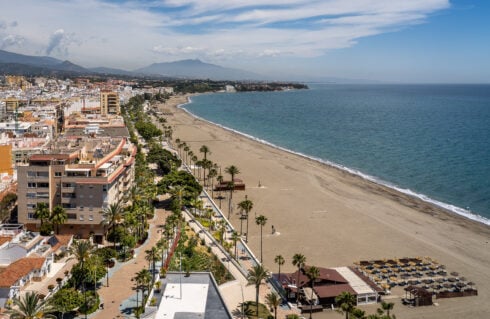
DEATH and taxes are two inevitable constants, but given the profusion of different taxes, Wealth Tax is one that sometimes takes people by surprise.
What exactly is the status of what in Spain is called ‘Patrimonio’?
If you move to Spain you will reasonably expect to be paying VAT (known here as IVA) on goods and services, along with municipal rates and taxes, and of course the universally familiar ones such as income tax, capital gains tax and inheritance tax.
However, having been reinstated during the financial crisis, wealth tax is the one that takes many foreign residents by surprise.
This is especially true of British citizens, as there is no such thing in the UK.
However, both Spaniards, foreign residents and non-residents are eligible for wealth tax – providing they own a property in the country. Beyond that, the specific rules applying to residents and non-residents do vary considerably.
 If you’re a non-resident you only pay wealth tax on your Spanish assets, where the tax for residents is calculated against their total (worldwide) assets, but these are subject to generous allowances, that if applicable, can greatly reduce the amount payable.
If you’re a non-resident you only pay wealth tax on your Spanish assets, where the tax for residents is calculated against their total (worldwide) assets, but these are subject to generous allowances, that if applicable, can greatly reduce the amount payable.
What makes life (even) more complicated is the fact that while this is in the first instance a national tax, it is generally one set and regulated by Spain’s many different regional authorities – in our case Andalucía.
They are often the ones who determine the nature and size of tax-free allowances, deductions and rebates, as well as the taxable rate itself. The law of the region you live in, or own assets in, is the one that applies to you if you are resident, while the national wealth tax regulations concern non-residents, who are also legally required to have a local fiscal representative in the form of a lawyer or gestor.
 What you’re taxed on
What you’re taxed on
The assets that fall under the taxable category include real estate, business/professional activities, savings, insurance and investment policies, luxury items such as valuable jewellery, art, cars, yachts and ownership of royalties or intellectual property rights.
Pensions, normal household items, personally owned and run businesses and author’s rights are exempt, if relating to the individual’s main activity and source of income.
Spanish wealth tax was reintroduced in 2011 as a ‘temporary’ measure, but these have a way of sticking and as of yet there is no clear indication of when it will be abolished, if at all. Compared to France and Portugal, Spain lags behind in making itself more attractive to foreign residents and investors.
Since 2012 the Government has been postponing year by year the implementation of the 100% tax allowance stipulated in article 33 of the wealth tax law.
For 2018 such extension has not yet been agreed, however, as our resident expert Adolfo Martos Gross from GAM Abogados comments: “Considering the 2019 wealth tax is due on the 31st of December 2018, the Government has time enough to agree so before that date.”
What other countries are doing
The fact is, like many countries in Europe right now, Portugal is a high tax country for its citizens while offering attractive incentives for foreigners, who can apply for a ten-year Non-Habitual Resident Tax exemption – a loophole that allows you to live up to 100% tax-free in the country during this period.
Residency is most easily acquired through the Golden Visa programme of buying property in the country, or by investing in an economic activity, and it can even lead to citizenship.
France, too, has been implementing tax reforms as part of an overhaul designed to make it more economically vibrant and competitive.
As a result, wealth tax on savings and investments is being abolished, while the tax rate on income from investments is being lowered. Annual Wealth Tax of 0,5% to 1,5% on real estate assets remains in place, but on the whole the tax environment in France is improving for both nationals and expats.
 And Spain…
And Spain…
While its neighbours are becoming leaner and more attractive in terms of their fiscal policy, Spain for the moment remains locked in stasis.
Anticipated in the near future is not the abolition of wealth tax, but rather a series of reviews in each of the individual autonomous regions.
For now there is no indication that this will usher in significant reductions or make the system more lenient, but there is hope that in the medium term Spain and its regions will want to follow the example of countries such as Portugal, the Czech Republic and France, who themselves are emulating steps taken by the likes of The Netherlands and the UK some time ago.
Click here to read more Adam Neale: Property Insider News from The Olive Press.








